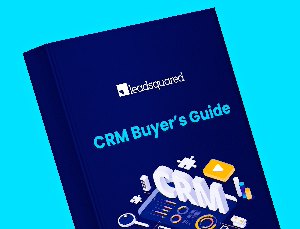A number of interesting questions were asked at the webinar ‘How to organize your Lead to Revenue Lifecycle’. Those of you who missed the webinar, here’s a summary of some of the questions asked during that session. You could also listen to the webinar recording here.
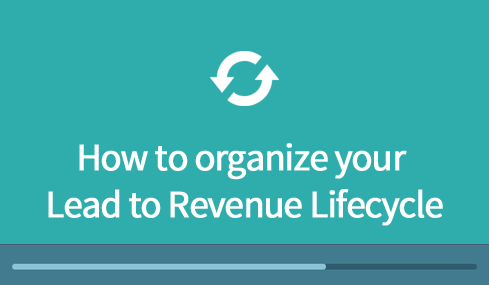
Question 1
What is the common definition of lead, for both sales and marketing?
This definition has to be derived by the sales and marketing team together. There are simple parameters that you can look at, which are usually driven by certain numbers. For example, in B2B business, the marketing team could say that if I get you a qualified appointment, with the VP of Sales, or the VP of marketing, or the Chief Financial Officer of a company, with the size of over 1000 people or 10 million dollars revenue, I have done my bit.
But then, the salesperson may say, no, that’s not enough because the marketing team is essentially just handing over a name and saying call him up without knowing if he is interested in the product or service, or having a sales conversation. If that is the case, then the marketing team needs to further qualify the lead. The marketing team needs to have a little more bandwidth to have a meaningful conversation before handing over the lead to the sales team.
Question 2
Sometimes, a lead may yield revenue only after a long period of time? How can we track those leads?
Tracking these leads would certainly require a system. If the lifecycle of the lead (till closure) is a couple of months, then it’s very hard for you to keep track of them, manually. It can be done if the lead volume is less. Then you can keep a note of the details in excel sheets. But that can be tedious. I would say, if the lead volume is big, having a system in place to track such details is advisable.
Question 3
Can we depend on social media for leads or is it just for branding in B2B marketing?
LeadSquared is a B2B company and we generate good leads from Facebook. This post will give you a better idea of how you can use social media for leads. Here’s an interesting infographic from Quick Sprout on social media as an emerging lead generation channel.
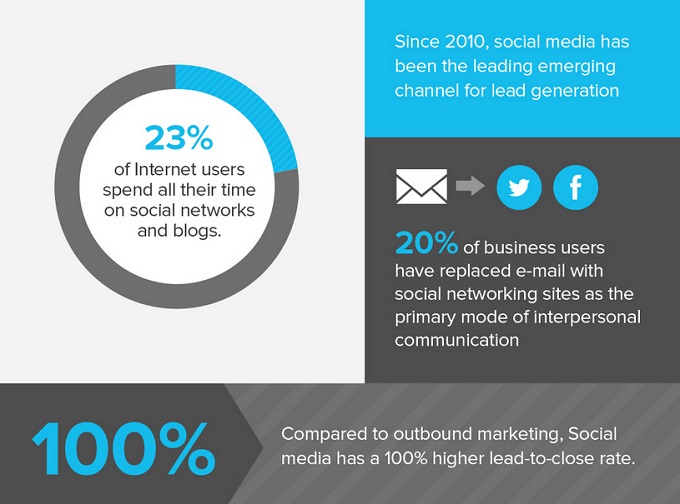
Question 4
Is a lead lifecycle, from lead generation to closure, different for every marketing channel?
Yes, it is possible. A lead who comes from Google ads would probably be searching for that product or service already. For example, if I am moving from Bangalore to Indore, I would be looking for Packers and Movers and I would take a decision with 5-15 days, depending on where I am. I look for it on Google, I find a couple of options and fill a few forms. Now, at that time, if I am on Facebook and I find a similar ad, I would still fill the form, whether I use it or not. But on Google, the intent is from me because I am actually searching for it. That’s how you can see how one channel could be better than the other. I’m not saying that Google is better than Facebook but in this case, the intent is more clear on Google.
Let me give you another example. I see a newspaper ad about real estate property. I am interested in it and therefore I am making a call. So in this case, the lead is making an effort to reach out to the business. The more the lead tries, the higher is the interest of the lead coming from that marketing channel and that affects the lead lifecycle.
Question 5
What is lead nurturing?
When we were young and in love, we gave roses and letters to our beloved to. We would try to get their attention. All the stuff we did or sent to them is nurturing. So basically, he nurtures her so at some point she would close the deal. In the business side of things I would say, engage with the prospect, try to understand what their needs are, and send them information which will help them make the decisions easier. In the older days, we would send traditional mailers to engage with our prospects. But today we have emails and so many other methods to keep them engaged.
Question 6
Will you help small business put this process in place?
Yes, many small businesses are using LeadSquared and we have helped them set it up.
Question 7
How to get leads for corporate training?
Corporate training is basically B2B training. I would have to take a B2B approach:
1. I would run ads.
2. I would make outbound calls.
3. I would send outbound email campaigns.
4. I would attend seminars, webinars and other local events where the HR or representatives are available from corporate organizations, and exchange business cards with them.
Question 8
What are referral websites?
Any other website (other than your own) from where you are getting traffic is a referral website. For instance, in our case, Quora is one such example. We get a lot of traffic from this website because we engage a lot on the questions there. Sites like Just Dial and Sulekha where businesses have advertised are also referral sites.
Question 9
Is LeadSquared helpful only for those who have online sales promotion for their business?
You can capture leads from offline events, etc., as well but those with an online presence would definitely be able to get the best out of LeadSquared.
Question 10
For offline sales, how are email campaigns and tracking helpful?
Even if you generate the leads offline, (I am thinking that you would collect some details – maybe email IDs, etc.) after you have these leads in the system, you can engage them using LeadSquared. Plus, you can capture inbound phone leads as well. However, if you mean leads that are completely offline (not accessing internet in any form) then it would definitely not help.
Question 11
What’s the use of LeadSquared in real estate marketing?
You can manage your complete marketing and sales process, including lead capture, lead storage, engagement, management, sales intelligence and revenue in LeadSquared. You can streamline your marketing and your marketing strategies. For example, you can capture lead details using landing pages and keep them engaged with regular emails. Take a look at this case study on one of our real estate customers to see how they used LeadSquared to streamline their marketing process.
Question 12
Can you expand on how to engage leads?
You can send them intelligent emails based on the web pages they have visited, and the content they seem to be interested in. You could also set up auto-responders.
Question 13
What is API support?
API stands for Application Programming Interface. Let me explain how this works. Companies like Just Dial and Shiksha typically send leads via email and SMS. There could be a case where the business who is receiving these leads through SMS, has to manually enter those leads in their respective systems. With API, this could be changed. The option is to ask Just Dial or Shiksha to not send the leads via email but send those leads directly into the system. This would automate the lead distribution process based on their interests and eliminate lead leakage – i.e. losing those leads. To automate this process, you would need API support.
Question 14
How to engage through Web Chat?
There are multiple tools available to engage people through chat when they come to your website. We use Olark for our web chats. Another promising tool for engagement is Zopim Chat.
Question 15
How do you get data on page wise visit and time spent on that page?
You would have LeadSquared script installed on your website, and we record that data for the leads that are there in the LeadSquared system.
Question 16
How to efficiently create emails which would engage leads?
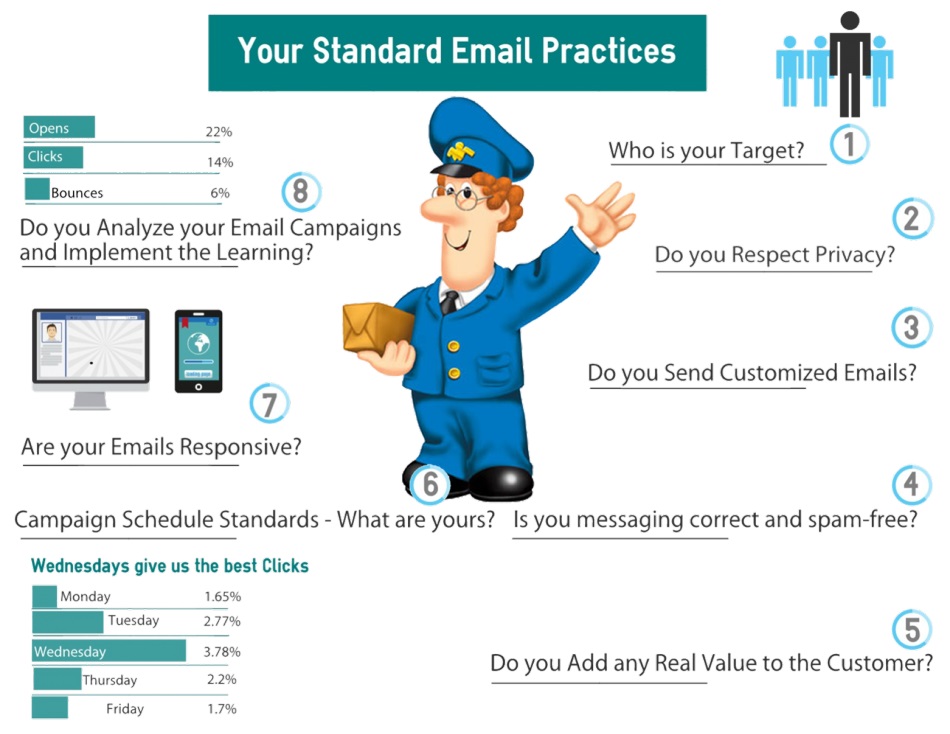
Using web intelligence (pages visited, e-books downloaded, etc.) to segment your leads, and then sending them customized emails is the best way to go about it. This post will help you get started. Here’s what you should keep in mind:
Question 17
How to get more leads for financial planning firm? Best idea for doing that?
There is no best idea really. You have to work through it and find the best ideas yourself. You spend money and try all the channels. There are essentially two parts to it:
1. Getting leads for financial planning.
2. Converting them to customers.
If you look at your audience, there would be some who you would go and pitch a deal to, saying you would look after their financial matters. Some people would agree immediately saying this has come from a trusted source and they would hand their money over to you. But a lot of people wouldn’t because they don’t trust you.
When it comes to money matters, trust is one of the most important elements for a financial planner. That being said, if financial planners continue to engage with their leads and build trust, which can actually be built over time, that could work as well. Let me give you an example. I had a banker who used to work with me. In 2008 I lost a lot of money when the stock market crashed and I started hating my financial planner because of that. Obviously, I was at fault as well. That point onwards, the individual has kept in touch with me. It’s been 6 years now. He understands that he made a mistake and so did I.
Today he has gained my trust. Over the course of those 6 years, he kept meeting me and talking to me, never asking for my business. Being a financial planner, you advise your clients when they are making wrong choices. Getting lead is not the most important thing in financial business. Earning his trust is equally important.
Question 18
What are the best practices for creating landing pages for lead generation? What are the main elements that we should have in landing page?
We have written several articles in the past about landing pages and best practices. Take a look at this post and the E-Book on Conversion Optimized Landing pages.
1. 6 HABITS of Creating Conversion Optimized Landing Pages
2. E-Book: How to Create Conversion Optimized Landing Pages
Question 19
What are the activities that we can consider keeping in mind for lead scoring?
It depends on the business. Since you are talking about activities, I can give you the example of webinars, which we organize regularly. All the people who register for the webinar get a certain score. The ones who actually attend it get a higher score because they have naturally shown more interest in what we have to offer. That is how you would rate your activity and wherever you see a higher engagement or more effort from the lead to connect with you, that is where you would assign a higher score.
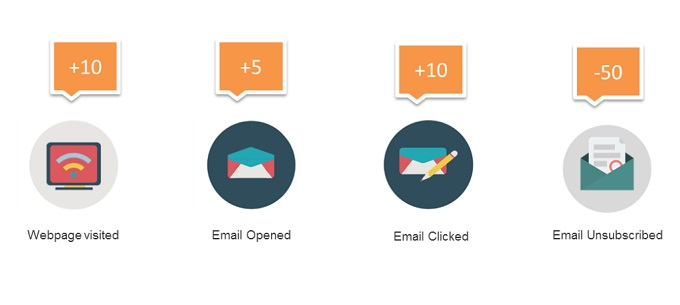
Let’s say you assign a certain score if someone opens a mail. But if someone fills a form, they should be given a higher score, indicating that they are more interested in the business. Even when it comes to forms, different forms should be assigned different scores. For example, a newsletter subscription form fill should ideally receive a lower score over a “Call Me Now” submission. So based on their interest and activity, scores should be assigned. For more inputs, read this post. You could also take a look at this webinar recording on Lead Scoring: Strategies & Benefits.
Question 20
How do you use content marketing to impact lead creation?
Create relevant content to drive traffic to your site. Use keywords that are relevant to your business and your audience. Include downloadable content such as E-Books and Whitepapers. This would be of value to your leads. You could also start a blog, hold webinars and other events which may be useful to your audience.








![[Webinar] Maximizing ROI with WhatsApp CRM](https://www.leadsquared.com/wp-content/uploads/2024/07/Maximizing-ROI-with-WhatsApp-CRM-webinar-popup.gif)
